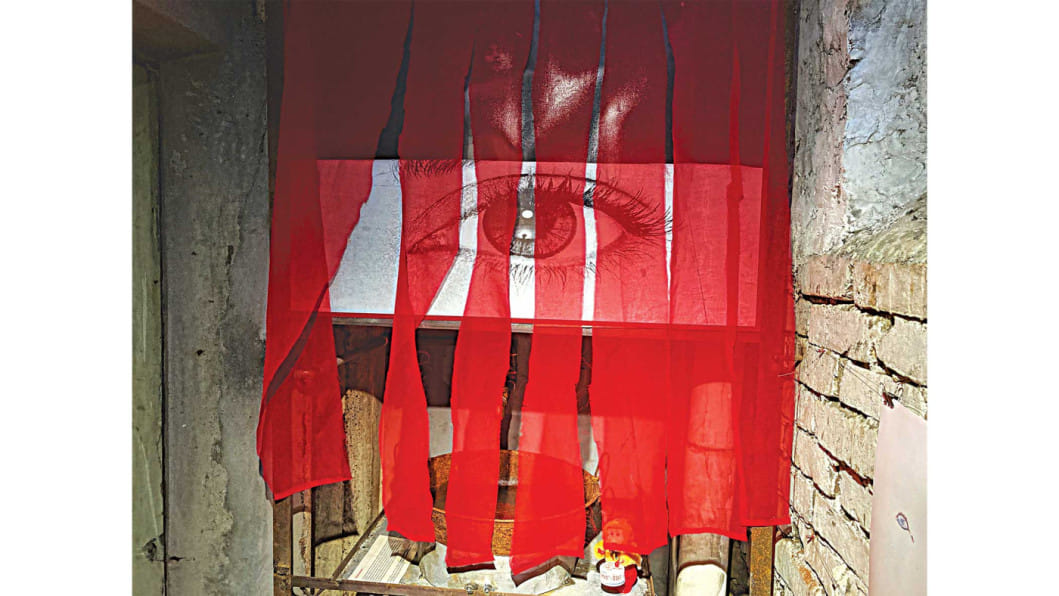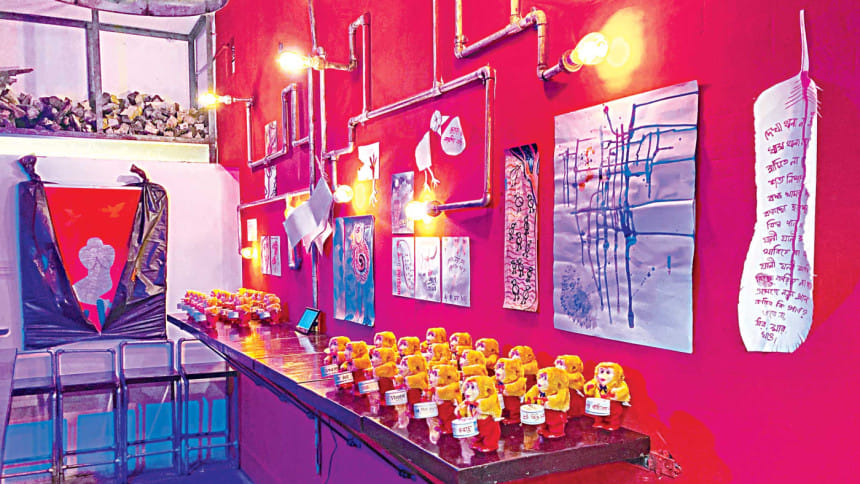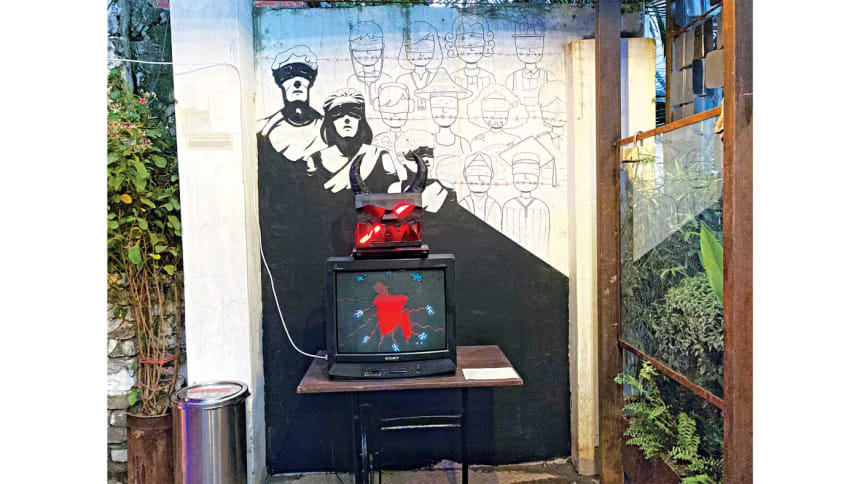Art is for everybody

Ghartera is a curatorial project that challenges the mainstream narratives of art through their collaboration with artists from diverse backgrounds, and experimentation of innovative forms of expression. Their second edition kicked off with the group show, "In the Terrains of Fear", at Lalmatia, Dhaka, on September 17, 2021.
The exhibition is a collaboration with the Goethe Pop Up Festival, supported by Goethe Institut Bangladesh. It is curated by Kazi Tahsin Agaz Apurbo, Ata Mojlish, Aananda Antahleen, and Doito Bonotulshi.

Their aim is to step out of the confines of the 'white cube', whose normative nature of displaying art caters mostly to a particular class of the country, denying access to the rest.
This intention of making art more accessible to the public is apparent in their use of the under-construction venue of B.B.Q Express, a new restaurant located in an alleyway in Lalmatia. Anyone who wishes to look at the art can walk into the space.
"The traditional gallery space often intimidates audiences with its rules that set who the viewer can be or can't be. But we believe that art should be interactive and that it is for everybody," says Kazi Tahsin Agaz Apurbo, one of the curators of Ghartera.
With the theme of fear in mind, the show brings together critically engaging projects by a conglomeration of artists, writers, activists, researchers, collectives and curators.

Through "Loss of Life", an artwork that is translated into mediums of painting, text and a music performance, Taiara Farhana Tareque focuses on her fear of the pain associated with chicken farming.
"The main focus of my work remains self-censorship. I also dwell on growing inequality plaguing the country," says Biglipseclipse, one of the artists.
Kawsar Mia explores his fears surrounding his identity of belonging to a minority community, and how it is viewed under the scrutinising lens
of the country through his work, along with the pain that permeates from that experience.
AAA battery, an anonymous collective breaking away from the norms, steps into a non-art format with their conversational art that offers a strong critic of the existing political system. They refuse to play by the conventions of the traditionalist white cube and its rules of display that confines each artist to an individual gallery space.
Photographer Orchid Chakma focuses on the history of the Kaptai dam, the tales of displacement of the indigenous communities in the face of systematic oppression.
The event also showcases works by Shamset Tabrejee, Razib Datta, Junaid Iqbal Ishmam, Shehzad Chowdhury, Oishik Jawad, and the Khyapa collective.
The exhibition will run till September 23 from 3pm to 9pm.
The author is a student of Political Science, and a freelance journalist.

 For all latest news, follow The Daily Star's Google News channel.
For all latest news, follow The Daily Star's Google News channel. 



Comments